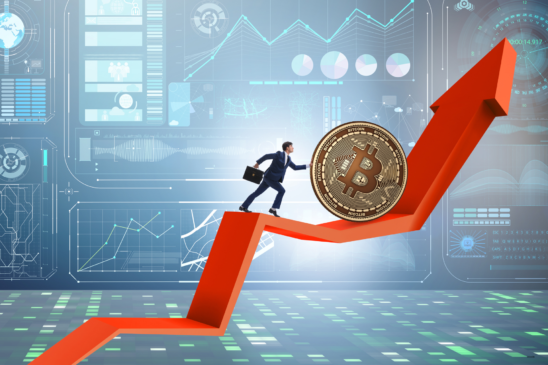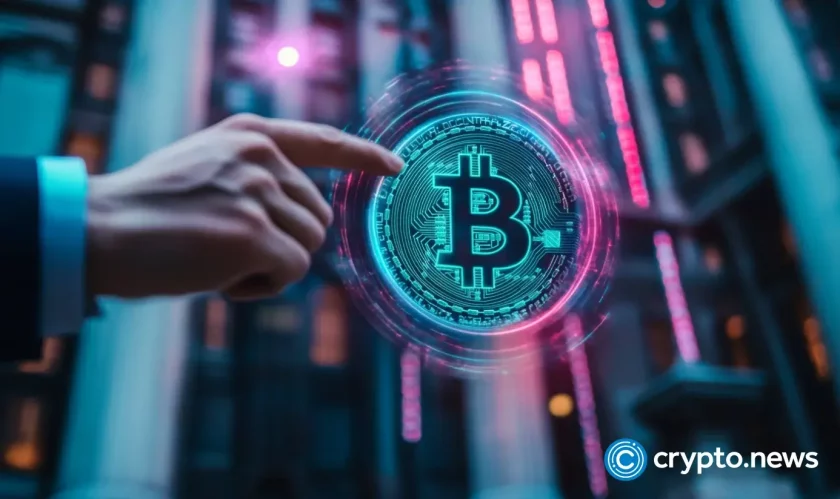In a surprising turn of events, Larry Fink, CEO of BlackRock, recently endorsed Bitcoin as an alternative to gold. This high-profile endorsement from one of the world’s largest asset managers marks a pivotal moment for Bitcoin and could reshape how institutional investors view digital assets. But what does it really mean when an industry giant like BlackRock steps into the crypto arena?
Is Bitcoin Really the New Gold?
Larry Fink’s recent declaration, “we believe Bitcoin is an asset class in itself. It is an alternative to other commodities like gold,” has left many in the investment world speculating: Could Bitcoin actually be the new gold? For years, gold has been the go-to hedge against inflation and economic instability, prized for its enduring value. Now, BlackRock’s endorsement suggests Bitcoin could serve a similar purpose.
But why now? Fink’s comments come at a time when central bank policies and inflation concerns are making investors rethink their strategies. Many are looking for assets that not only store value but also offer growth potential. With its limited supply and increasing adoption, Bitcoin has characteristics that appeal to a new generation of investors looking for digital solutions to age-old financial problems.
Bitcoin’s Path to Legitimacy: Beyond Speculation
What’s particularly noteworthy about Fink’s statement is the suggestion that Bitcoin is moving beyond a speculative asset to become a staple in long-term investment portfolios. While Bitcoin’s journey has been marked by volatility, BlackRock’s involvement signifies a shift in perception among institutional investors.
Fink also pointed out two crucial factors driving Bitcoin’s future: liquidity and transparency. For years, the crypto market has struggled with issues of liquidity and opacity, with major exchanges experiencing large price fluctuations and, at times, regulatory uncertainty. Yet, as Bitcoin matures and the market infrastructure improves, these factors may no longer be obstacles but rather catalysts for its growth.
BlackRock’s Growing Stake in Bitcoin: A Signal for Other Institutions?
BlackRock has quickly become one of the largest institutional holders of Bitcoin through its iShares Bitcoin Trust, with holdings of approximately 164,501 Bitcoin (valued at around $10.1 billion). These holdings underscore BlackRock’s confidence in Bitcoin’s potential as a mainstream investment. But why is BlackRock so bullish on Bitcoin, and what might this mean for other asset managers?
This endorsement could inspire other financial powerhouses to follow suit, potentially leading to unprecedented levels of liquidity in the crypto market. With more institutional backing, Bitcoin might experience a reduction in volatility, making it more attractive to everyday investors.
Strategic Moves in the Crypto Market: A Power Play by BlackRock
BlackRock’s foray into crypto isn’t limited to buying and holding assets. The firm is actively developing cryptocurrency exchange-traded funds (ETFs) through its Global Allocation and Strategic Income Opportunities funds, broadening investor access to the digital market. These ETFs, paired with BlackRock’s blockchain partnerships, reveal a clear strategy: make cryptocurrency investing accessible, regulated, and mainstream.
Additionally, BlackRock’s exploration of blockchain technology signals its commitment to innovation. The firm aims to integrate digital assets into conventional portfolios, providing clients with diversified exposure to the crypto market.
What Does BlackRock’s Bet Mean for the Future of Finance?
The implications of BlackRock’s embrace of Bitcoin are profound. As one of the world’s largest asset managers, BlackRock’s involvement could lend significant credibility to digital assets, nudging other firms to consider cryptocurrency allocations seriously. But what are the larger financial ramifications? Could this move signal a shift where Bitcoin and other cryptocurrencies become regular fixtures in retirement and wealth management portfolios?
Fink has suggested that digital assets could one day parallel traditional markets, such as the mortgage market, in terms of size and influence. Such statements imply a belief in Bitcoin’s potential to reshape global finance. However, this is not just about Bitcoin’s growth—it’s about transforming market infrastructure, analytics, and transparency to support a digital economy.
Could Fink’s vision usher in a financial era where digital and traditional assets exist side-by-side in portfolios? With the backing of institutions like BlackRock, Bitcoin is no longer just the “people’s currency”; it’s fast becoming an institutional favorite as well. The prospect of a Bitcoin ETF in the U.S. alone has spurred interest from retail and institutional investors alike, who are now seeing Bitcoin not as a speculative tool but as a legitimate investment.
Bitcoin’s Future in Mainstream Finance: A New Era of Diversified Portfolios
With Larry Fink’s endorsement and BlackRock’s strategic investments, Bitcoin is poised to become an integral part of diversified investment strategies. As Bitcoin’s role as an asset class continues to evolve, its function within portfolios could expand, offering a new layer of security and value preservation amid economic uncertainties.
Fink’s recent remarks underscore the dawn of a new era in finance, where digital assets are not only viable investment options but essential components of modern portfolios. This shift could redefine asset management as we know it, opening the doors to a future where traditional and digital assets coalesce, setting the stage for a more dynamic and inclusive financial system.
Disclaimer
Any information provided in this article is not intended to be a substitute for professional advice from a financial advisor, accountant, or attorney. You should always seek the advice of a professional before making any financial decisions. You should evaluate your investment objectives, risk tolerance, and financial situation before making any investment decisions. Please be aware that investing involves risk, and you should always do your own research before making any investment decisions.



